
On the road for ABS Transport in the Outback with an Actros Road Train
Business & Logistics
Trips extending over thousands of kilometres, frequently through wild bush country: it is a test of endurance that the extra-long trucks of ABS Transport have to face on a daily basis. “Mercedes-Benz Transport” joined a driver and his “road train” on a trip through the outback.
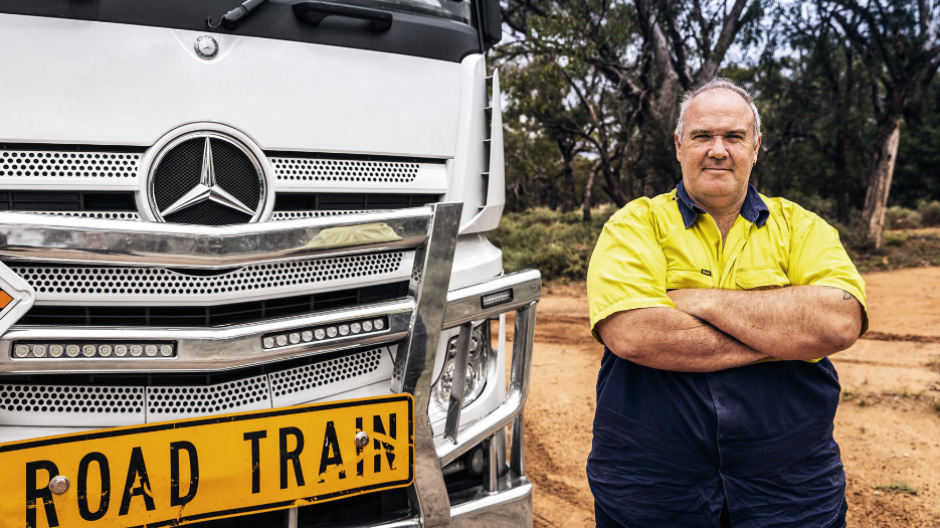
Long distance for more than 20 years Dale Koutlis enjoys his job – because he gets around, often meets interesting people – and at the same time has no problem with the solitude during the long hauls.
Was that just the wind, or is there something else rustling in the bushes? Perhaps a brown snake? No way to tell from here – and the last thing we need is risking an encounter with this extremely poisonous adder. “When I pull up in a lay-by in the evening they often come out and curl around the tyres because they are nice and warm,” says Dale Koutlis. So whenever he climbs down from the cab of his Actros he has to watch every step. “If I didn’t, it could be my last,” adds the trucker, with the chuckle of a man who hardly ever loses his cool because he knows exactly what to look out for.
Because this, the outback in the Australian federal state of New South Wales, is Dale Koutlis’s home turf. The “Mercedes-Benz Transport” team had arranged to meet up with the 55-year-old on a dusty parking lot along the “Kidman Way” in order to accompany him for part of his trip. Our meeting place is about 700 kilometres northwest of Sydney – not all that far from the densely populated east coast for Australian conditions, but still quite a long way out.
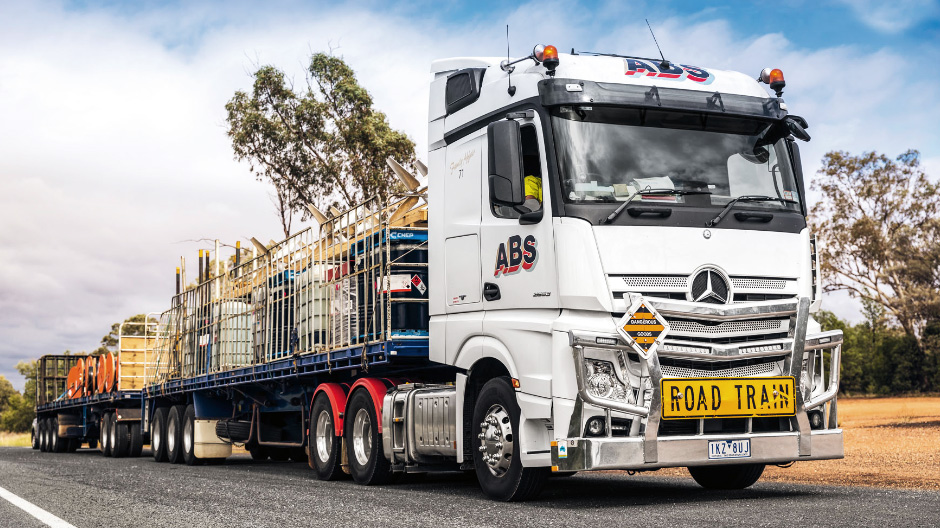
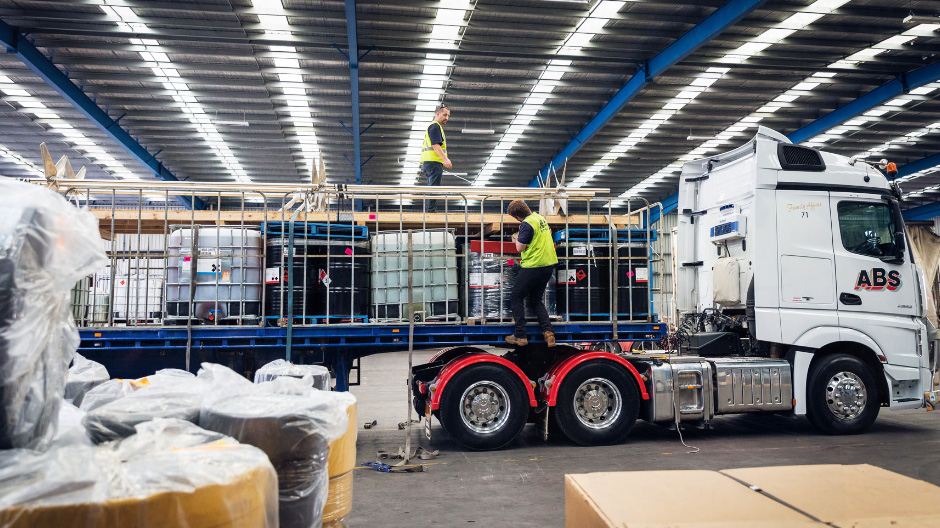
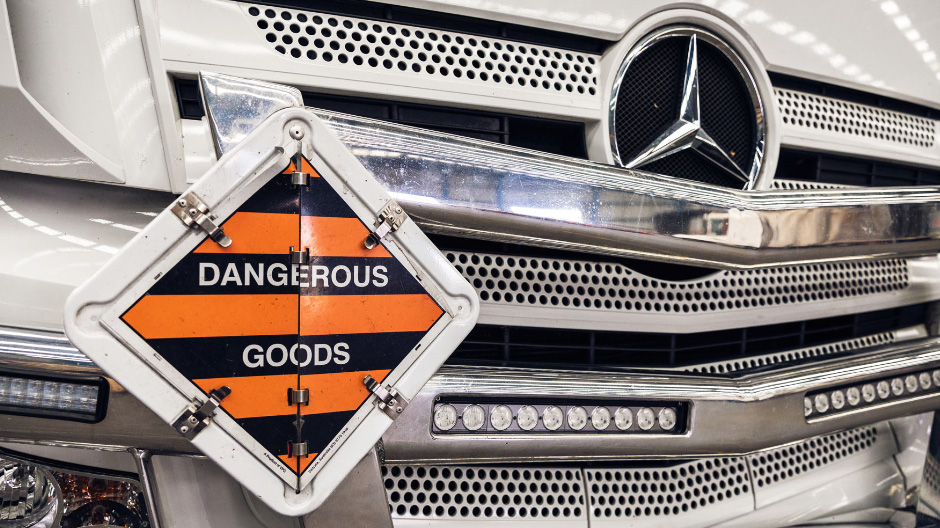
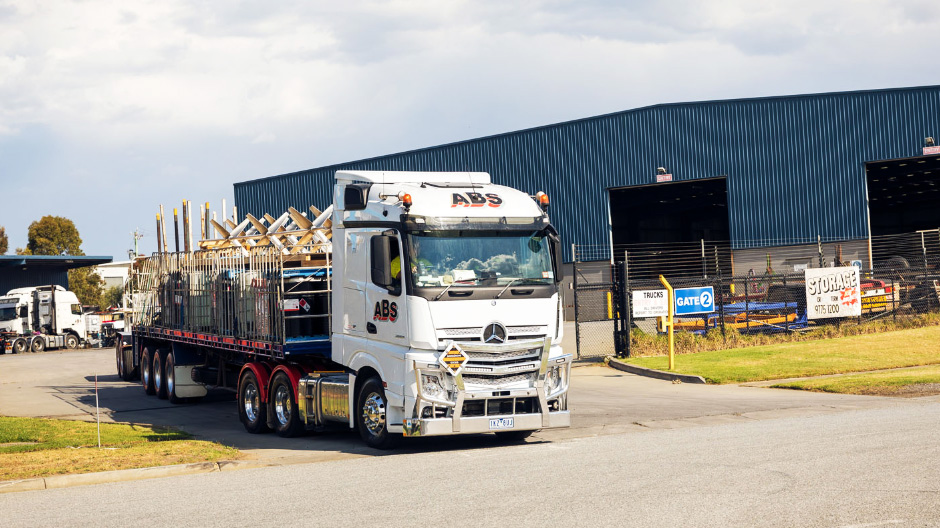
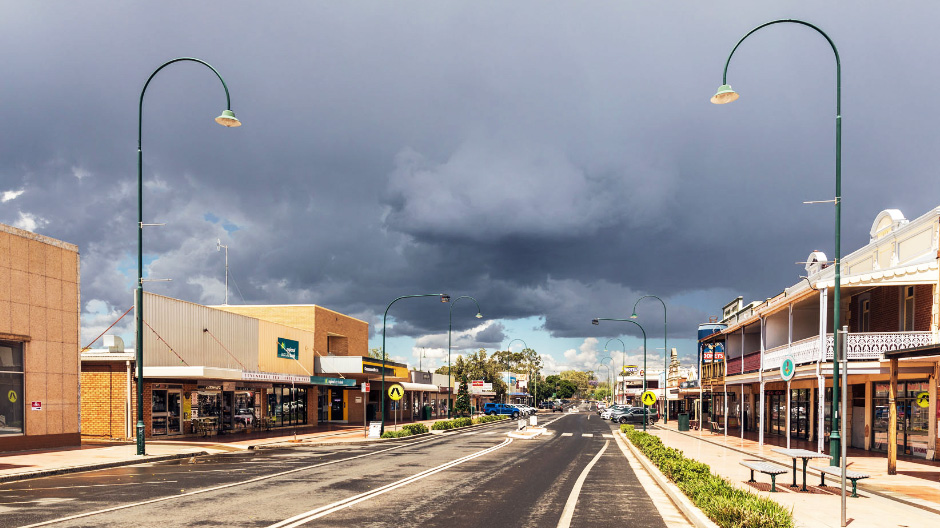
Away from home for weeks at a time.
Well, it is the outback, and it looks just as you would expect: red earth, gnarled trees and bushes inhabited by kangaroos dozing the daylight away, snow-white cockatoos and, yes, the occasional brown snake. Dale Koutlis often comes through here on his way from Melbourne to Brisbane. Depending on the route he takes, it can be a trip of up to 1 900 kilometres. “You have to really like driving long-distance to be doing this sort of job,” says Dale’s boss Terry Warn back at the head office of his company ABS Transport Industries, south of Melbourne.
Poisonous snakes are not the only challenge, not by a long shot: “To be alone out there, sometimes away from the family for weeks on end, it certainly does take it out of you!” The 64-year-old knows what he is talking about. Terry Warn started out as an owner driver, and today he still does the odd long-distance haul behind the wheel. “For me, being on the road and camping out in the bush is great fun!”
Warn’s family enterprise has around 70 employees and a fleet of 48 trucks. In addition to the head office, they have offices in Sydney, Brisbane and Adelaide, and branches in every state throughout this huge country. Their main cargo is machinery parts, often oversize, and hazardous goods. The distances these drivers have to tackle can be even longer than the runs Dale Koutlis makes. “It can be up to 4 000 kilometres, one way!”
On many of these trips, they travel in special semi-trailer rigs: the road trains. A prime mover here will pull two – in some Australian states even three – trailers that are linked using “dollies”. “The total length then is at least 36 metres, and a total weight of up to 90 tonnes,” explains Warn. Carrying loads of this size is profitable but calls for a great deal of effort, at least in the federal state of Victoria, where ABS Transport is based: “Here we are only allowed to tow one semi-trailer,” says the entrepreneur. “So we take the second one across the border into the next state with another truck, and there we hitch it up.”
This article contains additional material (videos, images and reports etc.) for registered RoadStars members. In order to experience the article to the full, you need to log in with your RoadStars account or register for one free of charge.
Become a RoadStar and gain access to exclusive content and campaigns!
Login for RoadStars members
Not yet a member? Join RoadStars now
Obtain exclusive access to exciting events and activities which only RoadStars can offer.
Join RoadStarsConcentration is key.
It is a shuttle service that on Koutlis’s trip covers a “mere” 260 kilometres. The rear trailer is loaded with cable drums, while the front trailer carries containers filled with printer’s ink, with a machinery part almost ten metres long along the top. To ensure that the XXL road train remains fully manoeuvrable, the crew loading the trucks have to place more weight in the front trailer than in the rear. Some 120 kilometres before we reach our destination, another shuttle truck picks up one of the trailers. At its full length, the road train would not be suitable for the streets of Brisbane, nor would it be permitted to enter this city with over a million inhabitants.
“When you drive a road train, concentration is key,” says the trucker over dinner in the mining town of Cobar. “The best way to do that is not to get stressed, and to take breaks regularly.” Which is easier said than done sometimes. On the way to Cobar, for example, a hail storm turned the soft road shoulders into muddy pits in no time at all – not a place for an extra-heavy truck to come to a halt, under any circumstances. “The Australian weather is unpredictable,” says Koutlis – who wouldn’t change jobs for anything.
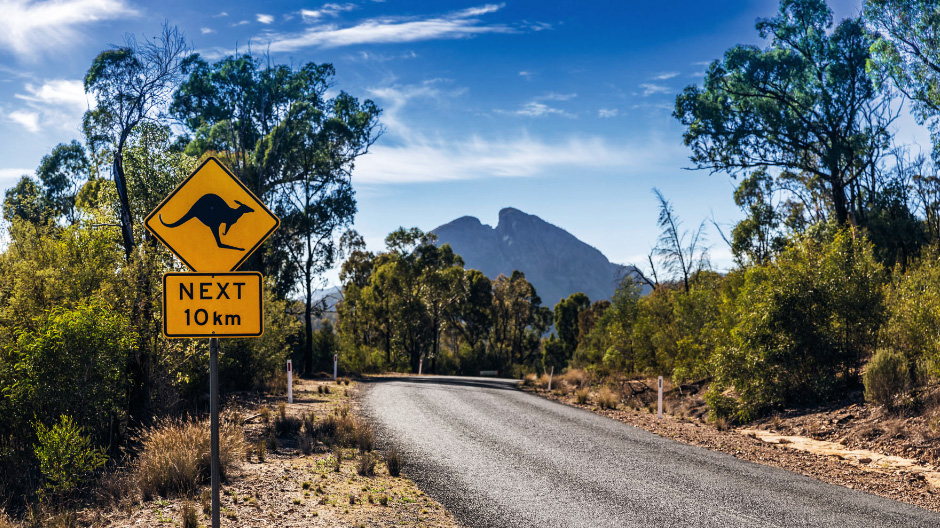
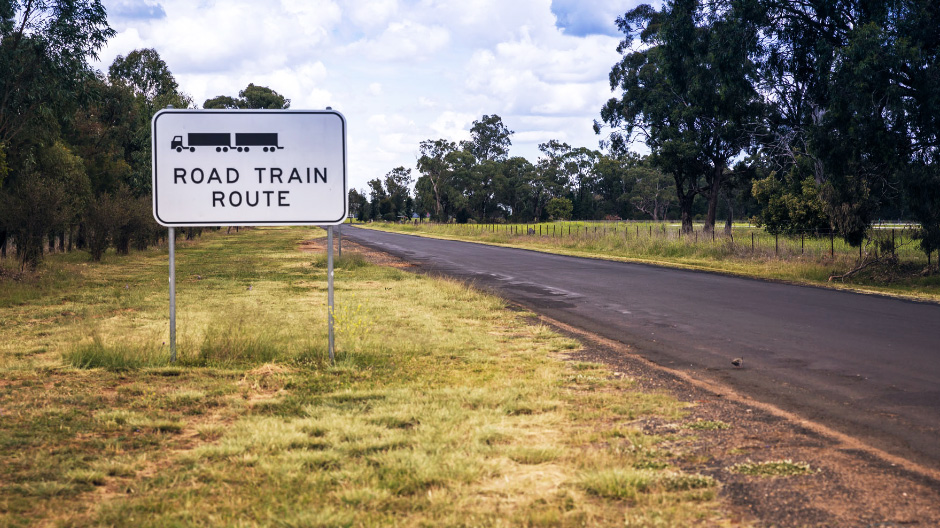
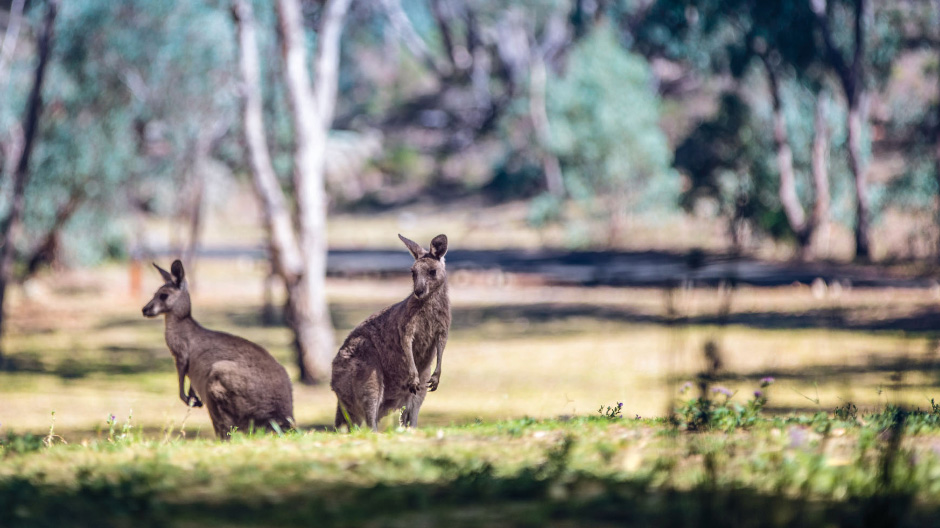

“You have to really like driving long-distance here in Australia to be doing this sort of job.”
– Terry Warn, director of ABS Transport Industries
One of the things that has made him enjoy his job for some time is the prime mover of this road train: an Actros. “In terms of comfort, it is fantastic,” says the trucker during a refuelling stop the next day. “Even after driving for hours, I don’t feel exhausted.” And then there is the low consumption – something which the ABS Transport boss Warn appreciates: “I compared the Actros with a five-year-old truck from the United States: it makes quite a difference when it comes to filling her up,” says the businessman. The saving per month was about 2 500 Australian dollars (about 1 640 euros) easy, he added.
After a test drive in 2016, Warn chose the Actros 2653, which was just becoming available down under at that time. “We were the first local provider to get one.” Today there are seven identical trucks in his fleet – and the entrepreneur is more enthusiastic than ever: “These vehicles are of such high quality that despite the enormous demands placed on them, we have been able to extend the service intervals for the long-distance trucks from 30 000 to 80 000 kilometres, with a clear conscience.”
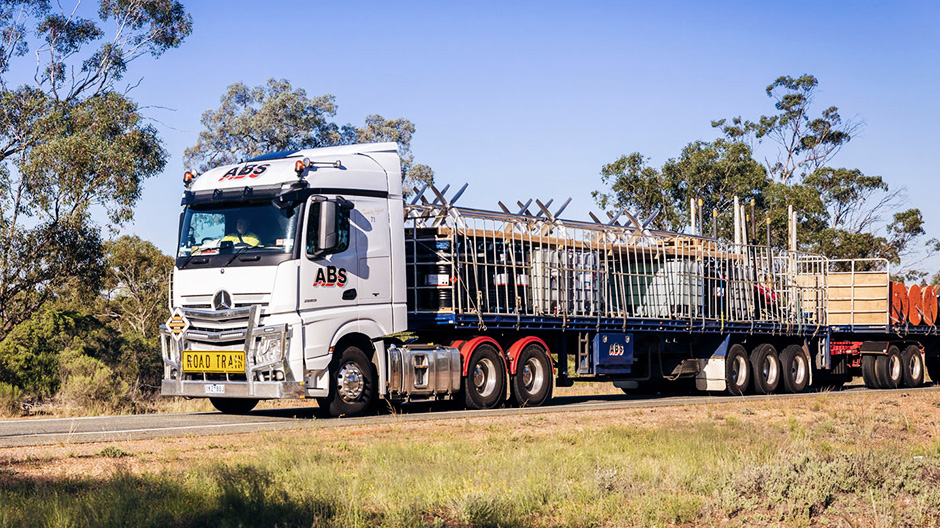
Mile after mile Dale Koutlis steers his so-called road train through the outback of Australia’s New South Wales. Here he is on the highway outside the small town of Cobar.
Like most overland trucks in Australia, the Actros run by ABS Transport have an aluminium “bull bar” mounted at the front. That’s because there is one thing even seasoned drivers like Dale Koutlis cannot always avoid: the occasional collision with Australia’s national symbol. Kangaroos, which can reach the size of a grown man, become more active at dusk and often come out of nowhere, and they have a habit of hopping across the road. There are yellow signs alerting the drivers of these animal crossings – and in the event of a collision, the “bull bar” mounted the truck helps prevent serious damage.
If a truck were to break down in the outback, it would not only require a massive towing effort but, depending on the route, deliveries to sometimes more than 20 customers would be delayed significantly. This is simply not an option for the team from ABS Transport. After all, punctuality and reliability are the be-all and end-all even in Australian extra-long distance haulage. That is why after having shared his cab with us for a few hundred kilometres, Dale Koutlis bids the “Mercedes-Benz Transport” team a swift goodbye – he still has a few hundred kilometres more to cover before he gets to where he is going.
Photos & video: Alexander Tempel




Comment
Please log in to post a comment.
22 comments
vielen Dank für dein Feedback! Wenn du mehr über Trucks in Australien lesen möchtest, sind diese Artikel vielleicht auch was für dich:
https://roadstars.mercedes-benz.com/de_DE/magazine/transport/03-2016/an-arocs-2645-6x6-in-the-australian-outback.html
https://roadstars.mercedes-benz.com/de_DE/magazine/2018/april/out-and-about-in-australia-the-zetros-off-road-capability-put-to-the-test.html
https://roadstars.mercedes-benz.com/de_DE/magazine/2016/december/off-to-down-under.html
Weitere Artikel zu Australien findest du übrigens über die Suchfunktion ( https://roadstars.mercedes-benz.com/de_DE/search.html )
vielen Dank für dein Feedback! Wenn du mehr über Trucks in Australien lesen möchtest, sind diese Artikel vielleicht auch was für dich:
https://roadstars.mercedes-benz.com/de_DE/magazine/transport/03-2016/an-arocs-2645-6x6-in-the-australian-outback.html
https://roadstars.mercedes-benz.com/de_DE/magazine/2018/april/out-and-about-in-australia-the-zetros-off-road-capability-put-to-the-test.html
https://roadstars.mercedes-benz.com/de_DE/magazine/2016/december/off-to-down-under.html
Weitere Artikel zu Australien findest du übrigens über die Suchfunktion ( https://roadstars.mercedes-benz.com/de_DE/search.html )
Und Grüße von Jürgen (mercu )
Und Grüße von Jürgen (mercu )
Und ein super LKW
Und ein super LKW
vielen Dank!
Touren mit 2000km...3000km....4000km einfachem Weg, da habe ich nicht einmal ansatzweise ein Gefühl dafür. Zum Probieren würde mich das mal reizen.
Argumente für den Actros lese ich:
Komfort für den Fahrer,
vorteilhafter Kraftstoffverbrauch und Zuverlässigkeit.
Absolut nachvollziehbar.
Gruß
Klaus
vielen Dank!
Touren mit 2000km...3000km....4000km einfachem Weg, da habe ich nicht einmal ansatzweise ein Gefühl dafür. Zum Probieren würde mich das mal reizen.
Argumente für den Actros lese ich:
Komfort für den Fahrer,
vorteilhafter Kraftstoffverbrauch und Zuverlässigkeit.
Absolut nachvollziehbar.
Gruß
Klaus